12 Reasons Why Doctors Are Changing Their Minds About Cholesterol
Tuesday September 18, 2018 by Marianne Gutierrez 3,001 words
1. Cholesterol Is Not the Bad Guy
Cholesterol is a waxy substance, defined by the lipoprotein that carries it to and from the blood cell. The two types the Doctors have been concerned about are: Low Density Lipoprotein (LDL) and High Density Lipoprotein (HDL). LDL takes the cholesterol into the cell and HDL takes it out of the cell. Both are equally important.
Apolipoproteins are particles that contain triacylglycerol (TAG), phospholipids, as well as cholesterol. Apolipoproteins bind the lipid to the protein.
Lipoprotein cells are distinguished by the type of protein and the type and amount of lipid they contain. The four main groups of lipoproteins are chylomicrons, very low-density lipoprotein (VLDL), low-density lipoprotein (LDL), and high-density lipoprotein (HDL) which all have a valid and different role in the body.
Cholesterol and its lipoprotein carriers is one part of the lipid profile. In the lay-person’s world, the words lipid and fat have been interchangeable with the word cholesterol, but that simplistic understanding confuses what these lipids, the life essential components, actually are.
Cholesterol is a subclass of one of the lipids of which there are 8 categories: Fatty acyls, glycerolipids, glycerophospholipids, sphingolipids, sterol lipids, prenol lipids, saccharolipids and polyketides. Cholesterol is from the sterol lipids classification.
Lipids were defined as ‘a class of organic compounds that are fatty acids or their derivatives and are insoluble in water but soluble in organic solvents’.
A study began in 2003, resulting in the first internationally accepted database, a free resource sponsored by the Wellcome Trust: Lipid MAPS has enhanced the understanding and knowledge of lipids.
An article in the Public Medical database of the US National Library of Medicine National Institutes of Health explains the role of lipids:
Lipids are a diverse and ubiquitous group of compounds which have many key biological functions, such as acting as structural components of cell membranes, serving as energy storage sources and participating in signaling pathways.
Poh Smith / shutterstock.com
2. The Body Needs Cholesterol
Cholesterol is essential for the membranes that encase every cell, including the nerve cells, it’s vital to the steroid compounds estrogen, androgen and vitamin D, and it’s necessary for making the bile that digests fats. Cholesterol is also protective against cancer.
Its importance cannot be overstated.
The liver makes cholesterol, and via lipoproteins it delivers it and removes it from the cells.
Cholesterol is also obtained from food and is also only found in animal products such as milk and fats.
Although we measure cholesterol production in the blood, it’s found in every cell in the body. … If you eat only 200 to 300 milligrams (mg) of cholesterol a day (one egg yolk has about 200 mg), your liver will produce an additional 800 milligrams per day from raw materials such as fat, sugars, and proteins.
Lana K / shutterstock.com
3. High LDL Cholesterol Can Protect Against Cancer
As already stated, cholesterol is made by the liver and is also found in some foods. The liver makes cholesterol from animal products and sugars. Cholesterol is carried to the various cells by the blood. A blood test can reveal what cholesterol there is in the blood, which is a mix of: LDL cholesterol, HDL cholesterol and triglycerides, and then a total cholesterol count is made. For example, some people may have a high cholesterol number, but the mix of cholesterols and triglycerides can mean that HDL is higher and LDL and triglycerides are lower. Therefore, the doctor should say that despite the high number, you do not have a ‘cholesterol problem.’
However, interestingly enough it has been discovered that not everyone with high cholesterol is at risk of heart disease, and those with high LDL cholesterol have lived longer and cancer free.
Some people with high LDL cholesterol may actually be at a low risk of heart disease and are therefore potentially treated unnecessarily.
High levels of LDL cholesterol are thought to be the cause of fatty deposits in the arteries, and the fatty deposits in the arteries are thought to be the cause of heart disease. Cholesterol is not the cause of fatty deposits, high blood pressure is the reason why there are fatty deposits. Fatty deposits may cause heart disease and strokes.
When there is too much cholesterol in your blood, it builds up in the walls of your arteries. Over time, this build-up narrows the arteries and restricts blood flow to the heart. When the blood supply to a portion of the heart is completely cut off a heart attack results.
Cholesterol is part of the healing process for a damaged artery. Injury to arteries is caused by inflammation which causes high blood pressure and over-stretches the walls of the arteries. When damage occurs, platelets from the blood are sent to heal along with calcium, vitamin K, and fibrinogen to form the plaque that repairs the injured wall. This plaque causes a lump on the artery wall where toxins, calcium and cholesterol gather further restricting the blood flow in the artery.
Atherosclerosis is a big word for a big problem: fatty deposits that can clog arteries. These buildups are called plaque. They’re made of cholesterol, fatty substances, cellular waste products, calcium and fibrin (a clotting material in the blood).
Aydogan Yuce / shutterstock.com
4. Does Medication Reduce LDL Cholesterol?
Yes, statins do appear to work in reducing LDL cholesterol, but at what cost? The role that statins play in the body is one of the reasons why some doctors are changing their minds about cholesterol. However, there are some doctors who would like to introduce statins to anyone who may be a potential or low risk sufferer of heart disease.
An article ‘Statin Wars: Have We Been Misled About the Evidence?’ A narrative review by Maryanne Demasi Ph.D is very illuminating.
Dr. Demasi’s review states that Statins are the most widely prescribed drug in the world, despite the fact that the patents for these drugs have expired. Revenues are rising and by 2020 could reach one trillion dollars. Doctors are arguing about introducing the drug to millions of healthy people at low risk of heart disease. The hard fought dispute between doctors concerns the risks of statins and how they have been drastically understated while the benefits have been exaggerated. The actual data on the safety concerns and the efficacy of statins is a closely guarded secret that has not been subjected to the usual studies by other scientists. Dr. Demasi goes on to say that the lack of transparency about statins is causing a lack of confidence concerning the drug and its usage. Doctors and patients are being misled and she suggests that it is now a matter of urgency that the raw data from clinical trials is released. If you want to know more, read the full review at the British Medical Sport’s Journal website - Statin Wars.
How do Statins work?
HMG-CoA reductase limits the synthesis of cholesterol in the liver; the action of HMG-CoA reductase is activated by a negative feedback loop. This means it affects the cholesterol that goes into the blood and the cholesterol that leaves the blood. Statins interfere with the delicate feedback mechanisms by inhibiting the work of HMG-CoA reductase. The risks imposed to the body by statins have led to such severe symptoms they have been attributed to the cause of death.
Statins inhibit HMG-CoA reductase, the rate-limiting enzyme in cholesterol synthesis. They are designed to mainly inhibit HMG-CoA reductase in the liver. Inhibition of cholesterol synthesis further decreases circulating LDL because reduced levels of cholesterol in the hepatocyte cause it to upregulate expression of LDL receptors.
SMPTY / shutterstock.com
5. If Statins Are a Problem, Are There Any Other Medications?
Statins are the preferred medication for reducing cholesterol and are very effective. Other medication PCSK9 inhibitors of which there are two: alirocumab that goes by the trade name of Praluent and evolocumab, trade name Repatha; and Ezetimibe inhibits cholesterol absorption in the small intestine. These are used if people cannot tolerate Statins or have conditions that contra-indicate Statins. All medications have side-effects.
PCSK9 inhibitors are monoclonal antibody drugs that bind to PCSK9 and block its ability to cause LDL receptor degradation. They lower LDL cholesterol because with increased numbers of LDL receptors, more LDL can be removed from the circulation.
Mister Mark / shutterstock.com
6. There Are Natural Methods to Reduce Heart Disease
Allow me to explain a different theory of the cause of heart disease. Dr Thomas Cowan doesn’t believe a blockage causes a heart attack because the body is very well adapted to by-passing a blockage and taking the blood another route using the enormous network of capillaries. If all the blood vessels from one person were lined up, they would circle the earth between 1 and 3 times, meaning there are plenty of routes the body can take the blood. Dr Cowan who wrote the book Human Heart, Cosmic Heart explains that when the automatic nervous system is influenced by stress, diabetes and/or high blood pressure, there is a shift in the fuel that is used to using sugar rather than fat. This sugar usage causes a build up of lactic acid in the heart muscle which then can cause cramp - from angina to a heart attack.
In post-mortem studies of those with blocked arteries, 82 per cent did not die of a heart attack or stroke due to the blockage because it was a found to be a different part of the heart that caused the heart attack.
“I’m not saying blockages are good. I’m not saying plaque is good. What I am saying is it’s nowhere near sufficient to explain why people have heart attacks,” Cowan says.
Which then questions the medications on offer with those found to be suffering with heart disease.
It is accepted that high blood pressure causes the damage to the arteries and the body’s automatic healing processes causes the build up of plaque.
I like to simplify it by saying that carbs are dirty fuels — dirty in the sense that they generate excessive amounts of free radicals that poison the mitochondria. It’s this dirty fuel — the net carbs — that creates fermentation metabolism and subsequent lactic acid production. The answer is not to take more antioxidants. The answer is to reduce the production of free radicals by reducing net carbs and increasing the amount of healthy dietary fats you eat. This is a core tenet of a healthy diet, and if you understand Cowan’s explanation above, and how carbs act as a dirty fuel, you’ll have a good understanding of why a high-sugar diet causes heart disease and heart attacks.
Therefore, a diet low in carbohydrate consumption would help reduce heart disease. A diet that increases animal fats would help each cell to function more normally including brain cells that must have the DHA found only in animal fats.
OreaCreativeMedia / shutterstock.com
7. The Role of Fish Oils
Fish oils have been recommended for a number of years to reduce low-density-lipoprotein (LDL) due to a study in 1994.
Moderate amounts of fish oil (6 g/day) are unlikely to lower blood pressure in normotensive persons, but may increase HDL2-cholesterol, particularly in women.
However, a more recent study suggested that fish oils do not reduce heart disease but the study doesn’t mention the type of the fish oil used in the various studies, or the diet of the group taking part in the studies. If the group continued to consume carbohydrates in the studies, this would affect the results.
There is evidence that taking omega-3 capsules does not reduce heart disease, stroke or death. There is little evidence of effects of eating fish. Although EPA and DHA reduce triglycerides, supplementary omega-3 fats are probably not useful for preventing or treating heart and circulatory diseases. However, increasing plant-based ALA may be slightly protective for some heart and circulatory diseases.
Triglycerides appear to be the culprit in obesity as well as heart disease. Triglycerides are a lipid that are formed from calories consumed that are not immediately required for energy. Triglycerides are found in the blood and then stored in fat cells for use as energy as and when your body needs. The hormone glucagon triggers the release of triglycerides for energy.
When the content of dietary carbohydrate is elevated above the level typically consumed (>55% of energy), blood concentrations of triglycerides rise. This phenomenon, known as carbohydrate-induced hypertriglyceridemia, is paradoxical because the increase in dietary carbohydrate usually comes at the expense of dietary fat. Thus, when the content of the carbohydrate in the diet is increased, fat in the diet is reduced, but the content of fat (triglycerides) in the blood rises.
While the evidence is conflicting, there is some evidence in both studies that fish oils have an effect and as heart disease is now considered to be badly influenced by carbohydrates it makes sense to reduce or stop the consumption of those.
ANUCHID.L / shutterstock.com
8. What Is Measured in a Blood Test?
A blood sample is taken that will be used to determine the amount of bad cholesterol (low-density lipoprotein, or LDL), good cholesterol (high-density lipoprotein, or HDL) and other fatty substances (triglycerides) in your blood.
Based on the results of this, you will be prescribed Statins. It is not nearly enough information to then prescribe such a powerful and dangerous drug.
Jarun Ontakrai / shutterstock.com
9. Mounting Evidence That the Standard Blood Test Is Insufficient
Doctors are concerned that some people with High LDL may not be at risk of heart disease and are unnecessarily treated, they are also concerned that those with low cholesterol results may be at risk of heart disease and not treated. This concern highlights Dr Thomas Cowan’s theory of what is causing heart disease, which should now be strongly considered.
As Dr. Cowan explains the heart is not a pump, but a controller of blood, a little like a valve and as it cannot allow a continuous flow of blood to flush out the build up of lactic acid from the triglyceride fuel used in times of stress, a necrosis occurs that destroys cardiac tissue. This stops calcium from entering the cells. This reduction in calcium causes the heart to lose contraction stability. The pressure in the non-moving parts of the heart builds up and breaks off little pieces of tissue and these form the clots that conventional cardiology think cause heart attacks. The clots are not plaque, they are the result of calcium not being allowed into the cells. Dr. Cowan believes this is the route that leads to heart disease.
So it beggars belief that another popular drug that is prescribed for high blood pressure is a calcium channel blocker.
Calcium channel blockers decrease the excitability of heart muscle and are therefore used for treating certain types of abnormally rapid heart rhythms.
What causes abnormally high heart rates are too many refined carbohydrates including sugar and a lack of minerals including calcium but in particular magnesium.
F8 studio / shutterstock.com
10. The Apolipoprotein B100 (ApoB)
Apolipoprotein B100 (ApoB) is the newest test that is considered to be more definitive. Apolipoprotein is the name given to the proteins that carry cholesterol LDL, HDL and triglycerides in the blood. The test should give a more accurate result to the amount of LDL in the blood sample.
Determining LDL in this way is better than measuring the cholesterol stored inside, because ApoB has been shown to be a superior predictor of cardiovascular disease than measuring both LDL cholesterol and non-HDL cholesterol.
However, this test is still considering the theory that plaque causes heart disease and cholesterol causes plaque.
Designua / shutterstock.com
11. Heart Disease Can Be Reversed
It should be obvious by now that cholesterol is not the bad guy no matter what form it comes in. That inflammation from poor food choices is to blame. That consumption of foods that provide a good supply of minerals such as rock salt from ancient river beds, green leafy vegetables and animal fats from grass fed animals will reverse heart disease.
The best way to treat heart disease, then, is not to focus on lowering cholesterol—either by drugs or diet—but to consume a diet that provides animal foods rich in vitamins B6 and B12; to bolster thyroid function by daily use of natural sea salt, a good source of usable iodine; to avoid vitamin and mineral deficiencies that make the artery walls more prone to ruptures and the buildup of plaque; to include the antimicrobial fats in the diet; and to eliminate processed foods containing refined carbohydrates, oxidized cholesterol and free-radical-containing vegetable oils that cause the body to need constant repair.
Kues / shutterstock.com
12. Cholesterol Is Needed When Stressed
Stress increases the release of more cortisol which uses more cholesterol.
Cortisol, a steroid hormone, regulates metabolism and is made by cholesterol a sterol lipid. In times of stress blood cholesterol is lowered as cortisol robs it, and therefore illness can result due to the lack of cholesterol. Cholesterol is essential for every cell membrane, for hormone production, for the brain, nerves and digestion and if stress continues for a long time adrenal fatigue and thyroid dysfunction may result.
Cortisol is a steroid hormone, one of the glucocorticoids, made in the cortex of the adrenal glands and then released into the blood, which transports it all round the body. Almost every cell contains receptors for cortisol and so cortisol can have lots of different actions depending on which sort of cells it is acting upon. These effects include controlling the body’s blood sugar levels and thus regulating metabolism, acting as an anti-inflammatory, influencing memory formation, controlling salt and water balance, influencing blood pressure and helping development of the fetus.
Volosh / shutterstock.com

16 Warning Signs of Lupus to Watch Out For
1. Unexplained Fever Lupus can affect everyone differently and some may have …
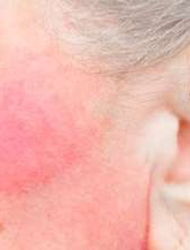
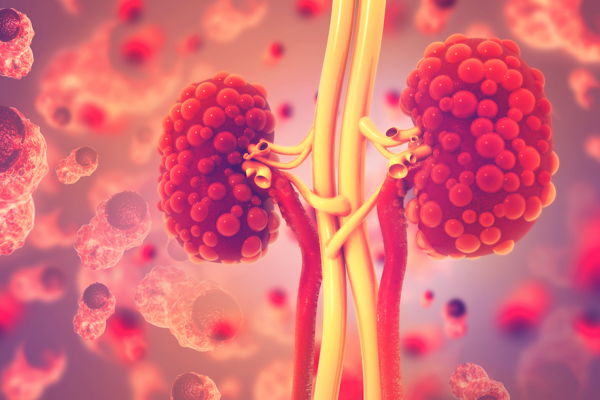
21 Features of Kidney Disease
1. Dizziness Kidney Disease is when the kidneys are not filtering blood …

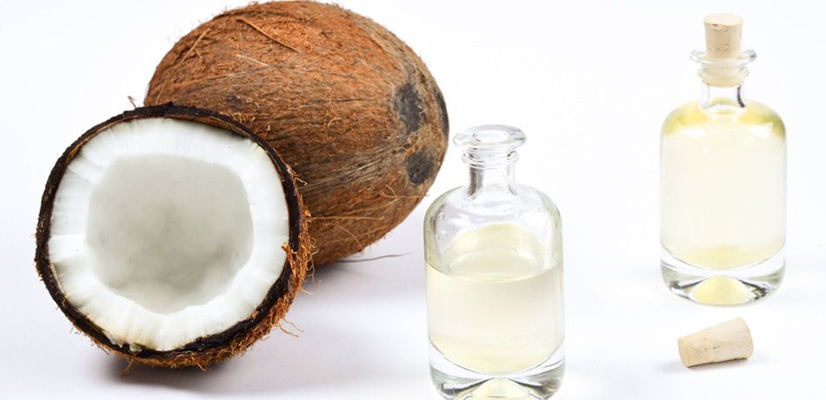
Top 10 Foods to Nourish Your Thyroid
Did you know that the food you eat can affect your thyroid health? Some foods …

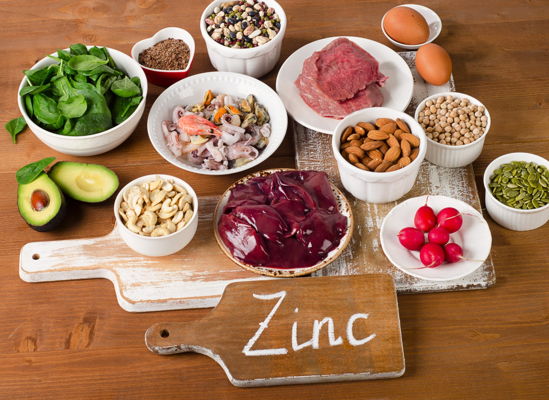
12 Facts About Your Borderline Personality …
1. It's Finally Classified As a Mental Illness Borderline Personality Disorder, …


12 Common Factors That Trigger Rosacea …
1. Makeup Some products used on the face and body or in the mouth ie: make-up, …

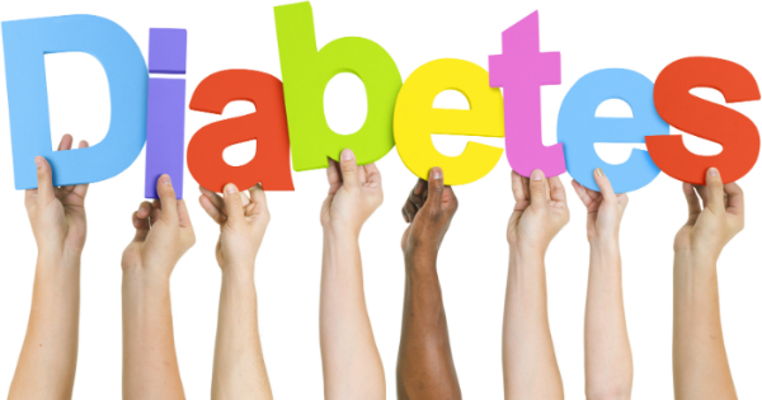
22 Common Symptoms of Type II Diabetes
1. Mood Changes Mood change is sometimes one of the first symptoms to suggest …
